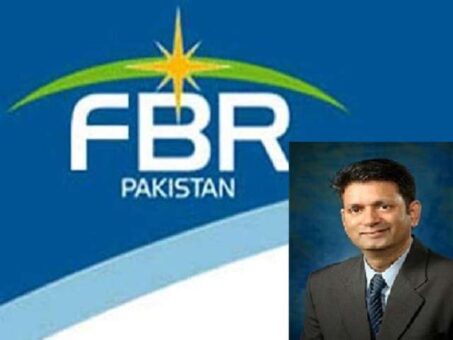ISLAMABAD: Federal Board of Revenue (FBR) has withdrawn all the appeals pertaining to income tax exemption on inward foreign remittances.
In order to implement the decision the revenue body issued, Circular No. 05 – Foreign Remittances – Exemption.
“In order to win the trust of the taxpayers and spare the public resources for more productive use elsewhere, all departmental appeals filed on the strict sensu interpretation of the law, be withdrawn immediately, and no further appeals be filed if one all fours of this clarification,” according to the circular.
Further, all circulars and instructions issued on the matter previously issued stand rescinded, the FBR added.
The FBR said a controversy has loomed for a quite some time as innovations in banking, money transfer mechanism, and development of newer products for cross-border transactions have outflanked the letter of the law as now Money Services Bus (MSBs), Exchange Companies (ECs), and Money Transfer Operators (MTOs) perform almost identical to those of scheduled banks.
In some situations, IRS Field Formations have refused concessions vis-à-vis foreign remittances remitted via ECs, that is, Money Gram, Western Union and Ria France etc. relying on Appellate Tribunal Inland Revenue’s judgment reported as ITA.No.794/LB of 2021.
It has been held that four conditions are mandatory to claim the benefit of foreign remittances under Income Tax Ordinance, 2001. The exemption is available subject to fulfillment of the four conditions, namely: the remitted amount is in foreign exchange; the amount is remitted into Pakistan through normal banking channels; the amount is encashed by a scheduled bank; and a certificate of encashment is issued by the bank concerned.
However, the State Bank of Pakistan (SBP) while responding to Federal Tax Ombudsman (FTO)’s memorandum through letter No.EPD/8302/EPP16(37)-Misc-2019, dated April 08, 2019, has categorically taken the position that foreign exchange remitted into Pakistan etc. does constitute ‘foreign exchange remitted through normal banking channels’ for all legal purpose.
The FBR said that SBP’s stance legitimizing remittances via MSBs, ECs and MTOs, and equating them with scheduled bank as laid down in Section 111(4) of Income Tax Ordinance, 2001, was challenged through a precise reference bearing C.No.1(1)TP/2017(A), dated March 31, 2021, mainly on four grounds.
First, that all four conditions are to be concomitantly fulfilled and that, prima facie, “prefunded non-resident rupee account and the foreign current account of Overseas Money Service Bureau (MSB), Exchange Companies (ECs), Money Transfer Operators (MTOs) etc. locally maintained with the Pakistani banks, and the subsequent replenishment through SWIFT cannot substitute the strict conditions of Section 111(4) of the Income Tax Ordinance, 2001.
Second, as per Section 2(m) of the SBP Act, 1956, a scheduled bank means a bank for the time being included in the list of banks maintained under sub-section (1) of Section 37 of the SBP Act, 1956, and that MSBs, ECs and MTOs were not scheduled banks as per section 37(1) read with Section 111(4) of the Income Tax Ordinance, 2001.
Third, Honorable Supreme Court of Pakistan in case law titled as Army Welfare Sugar Mills Ltd. and other versus Federation of Pakistan reported and reported as 1992-SCMR-1652 has laid down a couple of fundamental principles of claiming exemption, namely that (a) the onus of proof is on the one who claims exemption, and (b) that “a provision relating to grant of tax exemption is to be construed strictly against the person asserting and in favor of the taxing officer.”
Fourth, it is for Supreme Court and High Courts to interpret law and not the regulators like SBP to do the same.
The FBR further stated that the SBP through Memorandum No. EPD-30-4-2021-97865, dated May 7, 2021, held their ground and have responded to FBR’s afore-cited observations by stating that “to claim exemption under aforementioned clause of Income Tax Ordinance, 2001, a taxpayer receiving home remittances” via MSB and ECs “strictly fulfills all the conditions set in Section 111(4)(a) of the Income Tax Ordinance, 2001.”
The SBP has also gone on to item-wise address the question of fulfillment or non-fulfillment of the four cardinal conditions laid down in the Income Tax Ordinance, 2001.
“The SBP having unequivocally responded to all four critical questions, that is, that foreign exchange ought to originate overseas, must reach and be surrendered to the SBP, and transaction should have a banking trail behind, have been answered affirmatively.”
Moreover, the SBP under the Foreign Exchange Regulations Act, 1947, is the institutions to attend to all matters pertaining to ‘dealings in foreign exchange and securities and the import and export of currency.”
Therefore, the SBP being the frontline regulator of all foreign exchange moving into or outside the country, is in best position to decide as to whether the necessary legal requirements have been met or not of a particular transaction to be able to avail the benefit cover under tax laws.
Foregoing in view, it is clarified, the FBR said, that all cases of claim of foreign remittances be disposed of by according lenient interpretation to the conditions stipulated in section 111(4) of the Income Tax Ordinance, 2001.
“Moreover, in order to win the trust of the taxpayers and spare the public resources for more productive use elsewhere all departmental appeals filed on the strict sensu interpretation of the law, be withdrawn immediately, and no further appeals be filed if on all fours of this clarification.”



